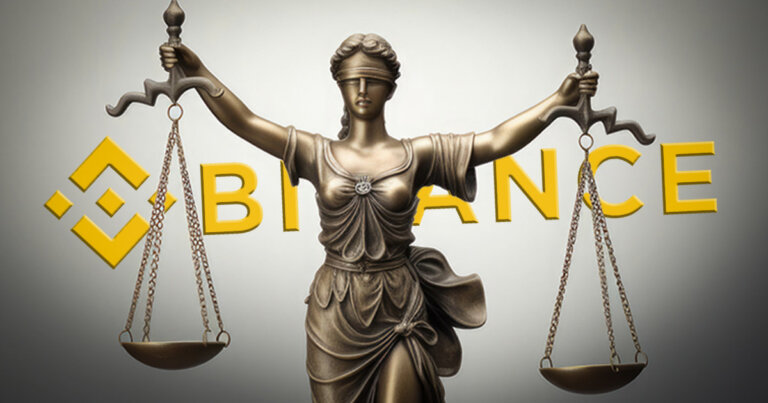 The SEC is using now-unsealed court records to bolster its Binance lawsuit
The SEC is using now-unsealed court records to bolster its Binance lawsuit The SEC is using now-unsealed court records to bolster its Binance lawsuit
The SEC wants the court to weigh CZ and Binance's admissions in its plea agreements, which support its allegations.

Cover art/illustration via CryptoSlate. Image includes combined content which may include AI-generated content.
In a filing on Dec. 8, the U.S. Securities and Exchange Commission (SEC) asked the court to take judicial note of the newly unsealed documents of Binance and its former CEO Changpeng Zhao‘s plea deals with other agencies.
The regulatory watchdog argues that Binance and CZ’s settlement agreements prove why its case should move forward. The SEC filing comes amid Binance and Zhao’s attempt to get the case dismissed. The SEC is asking the court to consider the admissions made by Binance and Zhao in its plea agreements with other agencies, including the Financial Crimes Enforcement Network (FinCEN) and the Department of Justice (DOJ).
According to John Reed Stark, former chief of the SEC’s enforcement division, the unsealed documents bolster the SEC’s lawsuit against Binance “exponentially.” Calling the unsealed documents a “treasure trove of fresh and comprehensive Binance-related inculpatory evidence,” Stark said that the SEC wants the court to accept the facts in the plea agreements as true, without formally presenting evidence. Stark added:
“Many of these Binance-related facts and admissions not only strengthen the SEC case but also reinforce the SEC’s arguments in opposition to the Binance’s current motion to dismiss the SEC action.”
For instance, in their motion to dismiss, CZ and the exchange argue that they did not get “fair notice” that they were violating regulations. However, in their DOJ plea agreements, CZ and the crypto exchange admitted to having “willfully” violated laws, which supports the SEC’s allegations.
Additionally, Binance and CZ admitted to having “intentionally sought and served” millions of customers in the U.S., with over 23% of its users located in the country, according to the plea agreement. These admissions further weaken Binance, CZ’s motion to dismiss, Stark said.
Binance agreed to unprecedented monitoring, unsealed documents show
The unsealed documents unveil that the exchange agreed to an unprecedented degree of monitoring and oversight as part of its plea agreement. Stark said that fulfilling the extensive compliance obligations could cost Binance “tens if not hundreds of millions of dollars to implement and execute.” He even warned that the “extensive, robust and vigorous” oversight could also spell the “end of Binance,” adding that:
“The stark reality is that neither Binance nor any other mega-crypto firm (or any financial firm in the world for that matter) has ever been party to a DOJ/FinCEN plea agreement commanding governmental oversight as vigorous, forceful and all-inclusive as the one Binance has agreed to undertake (and pay for).”
As part of its plea agreement, the exchange has agreed to retain an independent monitor for at least three years and grant the monitor access to all documents, records, and resources. This includes providing access to former employees, agents, intermediaries, consultants, representatives, distributors, licensees, contractors, suppliers, and joint venture partners.
Stark likened the extensive monitoring requirement to “installing bodycams on every member of a global criminal drug cartel, and making the cartel bear the cost” of the surveillance.
Additionally, Stark noted that the SEC or any other government agency can reach out to the Binance monitor to “ask questions, seek documents, take depositions or even present the monitors as witnesses in related judicial proceedings.”
According to Stark, the Binance and CZ plea deal is going to inevitably collapse, resulting in additional charges against Binance, CZ, and anyone “nefariously intertwined with the Binance criminal enterprise.”













































































































